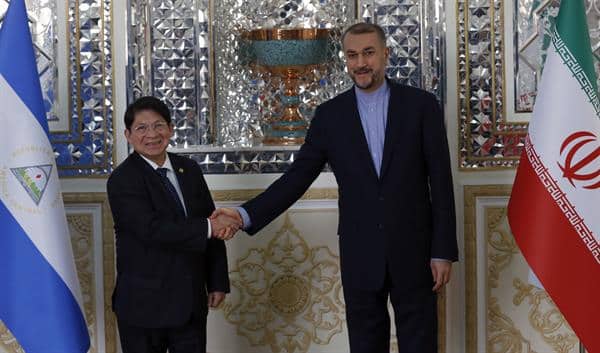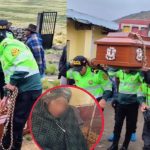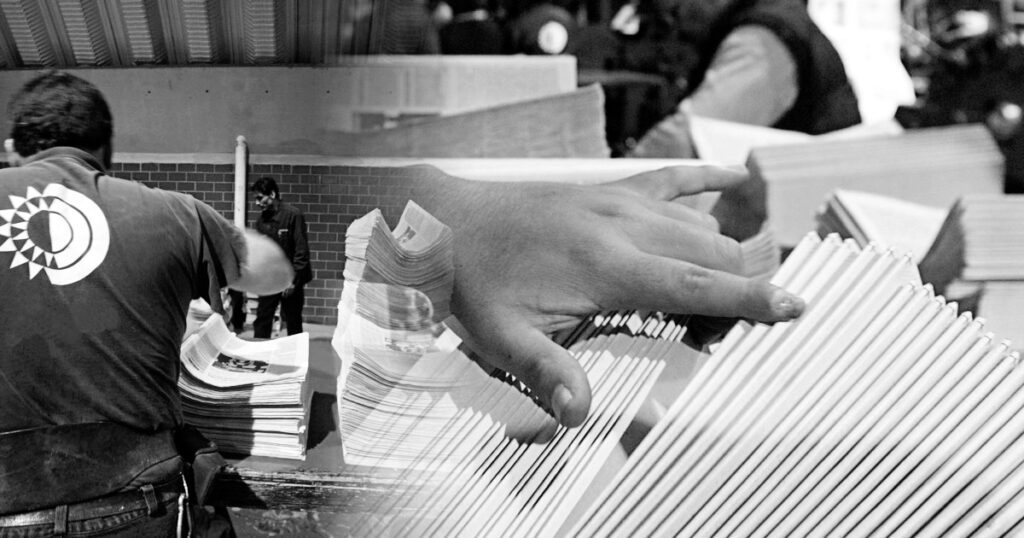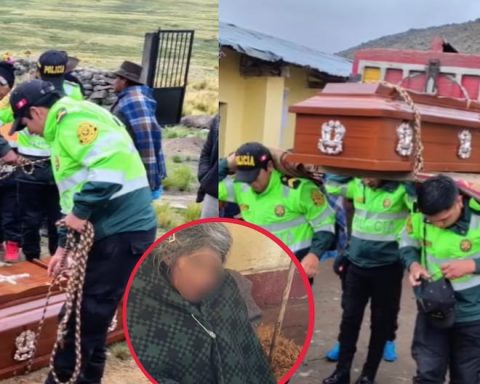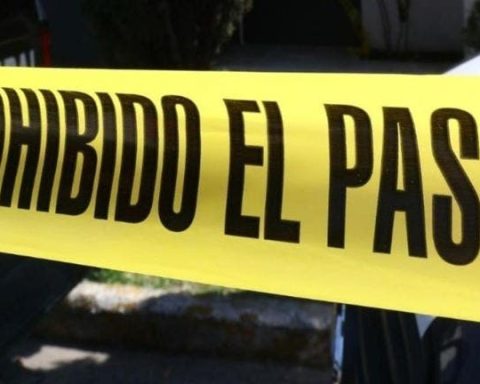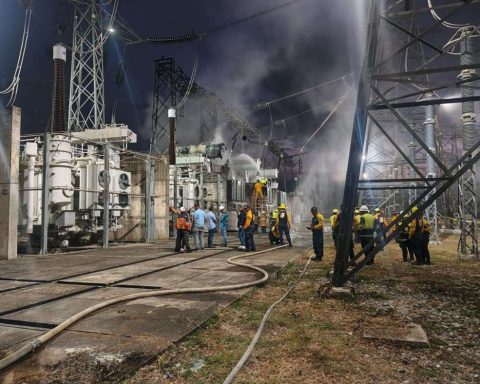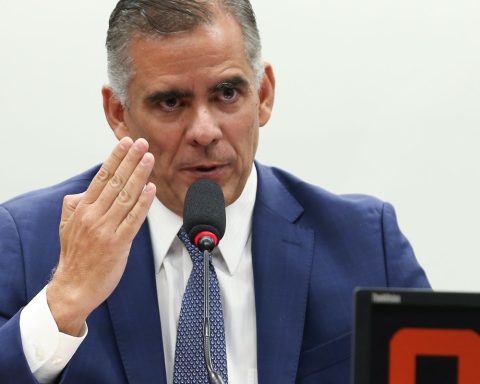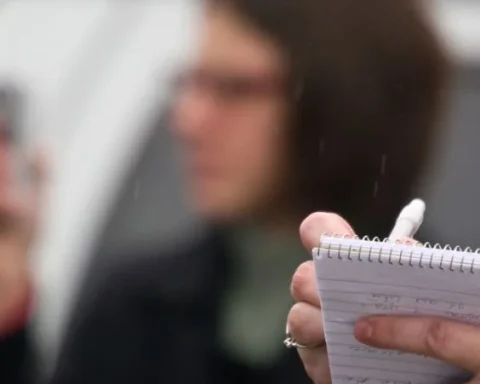Ortega’s chancellor Denis Moncada, led a diplomatic visit to Iran to sign a cooperation agreement with the Islamic country, internationally condemned for the public hangings of two citizens and the more than 400 protesters killed in the context of the protests that broke out three months ago, after the death of the young Mahsa Amini in police custody , for supposedly not using his hijab (veil).
Human rights defenders point out that the presence of Moncada in the midst of the crisis of violation of human rights that he is going through Iran reaffirms the repressive policy exercised by the Ortega regime.
“Our friends are these – in reference to regimes such as Cuba, Venezuela, Russia, Iran – and although they have not reached that extreme – as in Iran – formally speaking, the fact of greeting him, of not flinching, denotes a contempt for the rights human rights and for life itself”, which is the message they send, considers the human rights specialist, Uriel Pineda,
The protests in Iran began in September and have spread to more than 140 cities and towns, led by women, according to human rights organizations cited by the BBC. Meanwhile, the Iranian government has considered the demonstrations “riots” promoted by foreign enemies. The repression against the mobilizations, which now demand the end of the Islamic Republic, founded by Ayatollah Ruholá Khomeini in 1979, has left around 2,000 people accused of various crimes and more than 15,000 have been arrested.
Denis Moncada: “Iran and Nicaragua are brother countries”
Faced with the social explosion, the Ortega regime has maintained its firm support for its allied government. “Iran and Nicaragua are friends and brothers. We will resist domination and we will win,” Moncada said at the Tehran Dialogue forum, this Sunday, December 18. He added that the United States endangers international peace with “its violations of international law” and accused Washington of trying to provoke a third world war with the war in Ukraine.
Faced with US “domination”, Moncada praised Iranian policies that “emphasize international law and the development of relations based on trust.”
“We believe in building a better, multipolar and inclusive world based on respect for countries,” he said. “We raise the right flags for the good of humanity,” she said.
From Pineda’s perspective, highlighting the bilateral relationship between Nicaragua and Iran precisely at a time when there are executions and actions totally contrary to human dignity and respect for human rights can also be understood as a political message in Nicaragua.
“So far the repressive behavior of the regime seems to have no rational limit, respect for human rights. It also seems to be a signal for the opposition or groups in Nicaragua to welcome the repression in its highest representation. It would not imply that they want to implement it, but it does remain as a message that they could be worse off,” he said.
Iran belongs to the club of countries that violate human rights
Given the isolation of the Ortega regime, it can only turn to equal regimes, “lacking all kinds of rights and guarantees” -such as Iran-, says Gonzalo Carrión, lawyer and member of the Nicaragua Nunca Más Human Rights Collective.
Under the same logic, Pineda explains that there is a small club of countries that implement human rights violations as a means of social containment, to instill fear and retain power, as is the case in Nicaragua.
Just as Daniel Ortega has not recognized the general demand of citizens for a return to a democratic system, imposing himself through electoral farces and a de facto police state in charge of repressing and imprisoning any dissident voice, in Iran, they accuse protesters in legal proceedings arbitrary.
During the diplomatic visit, Moncada met with Iranian President Ebrahim Raisi and signed the agreement “Comprehensive Cooperation Program between the Government of the Islamic Republic of Iran and the Government of the Republic of Nicaragua” with Iranian Foreign Minister Hossein Amir -Abdoulahian
Nicaragua and Iran have signed during 2022 “14 instruments for the strengthening of bilateral relations, in areas of city twinning, pharmaceutical cooperation, sanitary requirements for the importation of beef, protection and plant quarantine…”, among other areas, reported media of communication related to the Government. However, since 2007, when Ortega returned to power and resumed diplomatic relations with his former ally, the concrete works that these agreements with Iran have produced are minimal.
In May a high-level Iranian delegation, Headed by the oil minister, Javab Owji, it promised to supply Nicaragua with petroleum derivatives, assuring Ortega that “together” they can “neutralize the aggressions and sanctions.”
“We forcefully condemn the unjust aggressions of some powers and the intervention in the internal affairs of Nicaragua,” he stressed, while declaring that they were “friends and brothers” of Cuba, Venezuela and Nicaragua, three regimes considered hostile by the United States and that are designated by the international community for perpetrating human rights violations.
In a special report on CONFIDENTIAL Regarding Iran’s “paper” promises, Tiziano Breda, analyst for Central America at the renowned firm International Crisis Group, opined that behind the signing of agreements as pompous as those of Iran-Nicaragua there are more geopolitical than economic interests. More so in a context of isolation and lack of international legitimacy like the one that surrounds the regime of Daniel Ortega and Rosario Murillo.
“We must start from the premise that the announcements made with Iran, Russia and with other authoritarian regimes or governments or with the few political partners aligned with Daniel Ortega serve the purpose of showing mutual recognition at the political level. Achieve political rather than economic returns. Normally these translate into smokescreens, ”he highlighted.
With information from EFE
